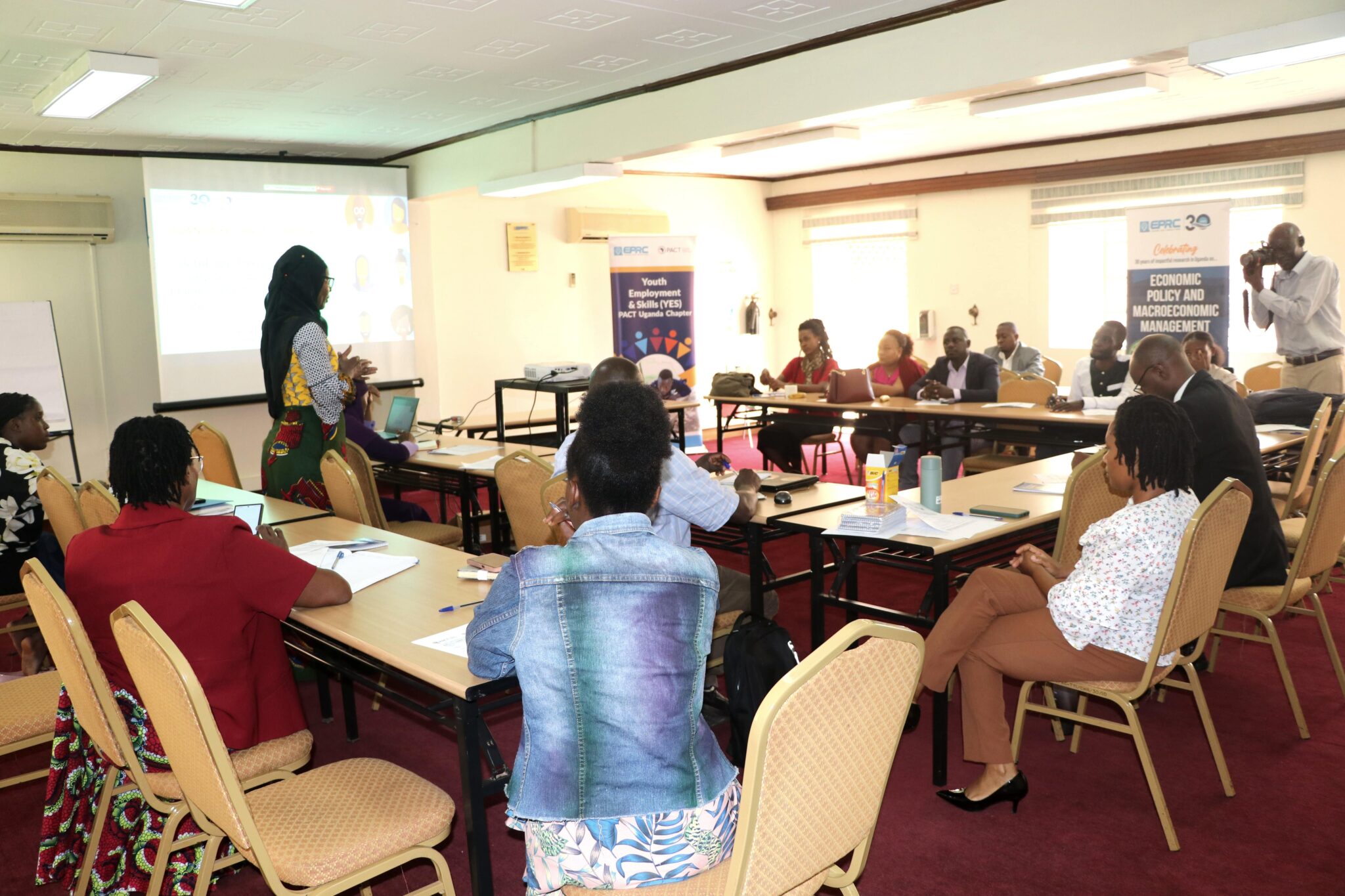KAMPALA, October 18, 2024 — A new survey has highlighted significant gaps in the implementation of the revised lower-level secondary curriculum at the time when the first cohort of students sit for their Uganda Certificate Examinations [UCE].
Conducted by the Economic Policy Research Center [EPRC] across seventeen schools in various regions, the survey revealed that many teachers are still grappling with aspects of the new curriculum, particularly project work, assessment, and grading.
The was survey done under the Youth Employment and Skills [YES] Pan-African Coalition for Transformation [PACT] programme supported by the Mastercard Foundation through the African Center for Economic Transformation [ACET] Ghana as the overall coordinating institution.
During a recent knowledge café, where EPRC shared the results with teachers, school administrators, officials from the National Curriculum Development Centre [NCDC] and other interested parties, it was observed that teachers needed more preparation as challenges persist.
Blessing Atwine, a Research Analyst at EPRC, noted that teachers have remained confused about key aspects of the despite the training provided.
According to Atwine, some teachers feel there is a huge gap in how to award scores for projects, activities of integration [AOIs] and end-of-cycle assessment.
“There are many [unanswered] questions, and we don’t know how to proceed with the projects. Is it one project per student, one project per subject, or a group project? We need these questions answered and soon,” a teacher told the survey team.
Uganda National Examinations Board [UNEB] will conduct final examinations in mid-October for the first cohort of students to undergo teaching based on this curriculum. The outcomes, to be announced early next year, are expected to be a focus of discussion on the impact the new curriculum has had on general teaching.
The revised curriculum started four years ago with 35 percent of teachers trained directly by NCDC. They were expected to train their peers in a cascade mode of arrangement. Our survey indicated that trainers met resistance from other teachers, and sometimes the master trainers looked less prepared for the same, leaving their peers confused on certain aspects of the curriculum.
The EPRC survey, which focused on in-service teachers’ readiness, found that while the curriculum is intended to be student-centered, many schools continue to use traditional teaching methods. Many schools still lack infrastructure, including computers to facilitate the envisaged proper way of teaching. The new curriculum is also perceived to be a high-cost venture and time-consuming.
Additionally, parents’ lack of understanding of the new system further complicates implementation.
Bernadette Karuhanga, Deputy Director of NCDC, acknowledged the challenges and said she was happy that the research was bringing them out. She noted, however, that most of the issues raised stem from a longstanding focus on exam-oriented teaching rather than student learning.
https://thecooperator.news/new-website-for-international-cooperative-business-education-consortium/
Buy your copy of theCooperator magazine from one of our countrywide vending points or an e-copy on emag.thecooperator.new
